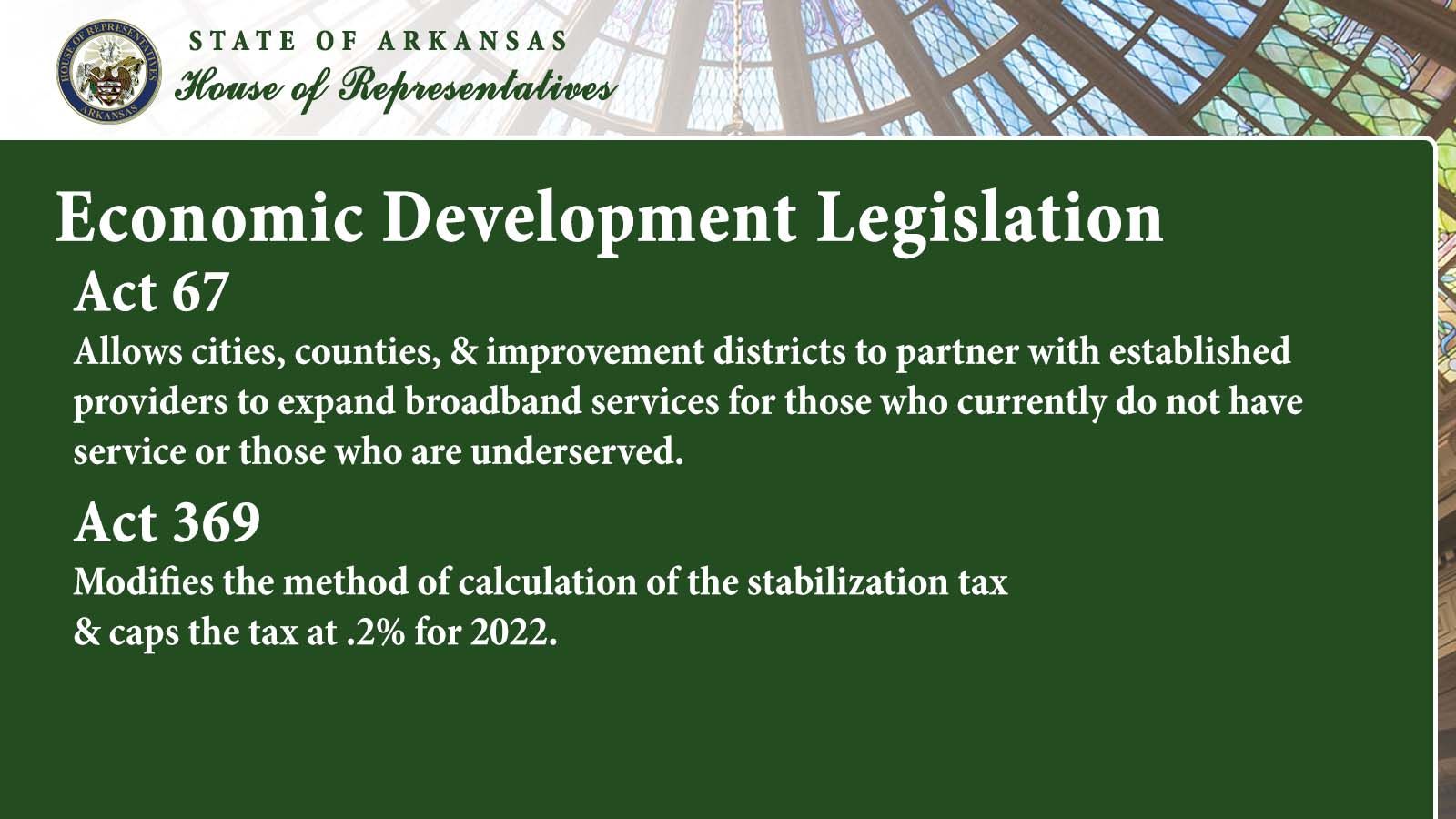
Act 67 allows cities, counties, and improvement districts to partner with established providers to expand broadband services for those who currently do not have service or those who are underserved.
Act 522-This bill creates the Arkansas Military Affairs Council Act and establishes the Military Affairs Grant Program. The council will work with the Arkansas Economic Development Commission to promote and support military installations for state and local economic development.
Act 568 -This bill creates the Small Town Economic Development Act. This bill amends the exemptions to the licensing requirements for architects to buildings whose fair market value does not exceed $250,000. The current exemption is for buildings under $100,000.
Act 555 -This bill establishes the Online Marketplace Consumer Inform Act. It would require an online market facilitator to collect information, including business name, address, email, and phone number. High volume sellers would be required to have this information accessible to consumers on their website.
Act 659 -This bill is intended to encourage home-based entrepreneurship. It outlines what restrictions local governments can and cannot place on home-based businesses.
Act 369 -This bill modifies the method of calculation of the stabilization tax and caps the tax at .2% for 2022.
Act 368 -This bill caps the taxable wage base for employers at $10,000 for 2022.
Act 418 -This bill creates a state meat inspection program. The bill states that a lack of a state meat inspection program causes a significant revenue loss generated from meat processing for this state and stifles opportunities for farmers to expand their meat processing capacity. It also states that it is currently prohibitively expensive for food banks to receive and distribute meat without a state meat inspection program.
Act 153-This bill gives the Director of the Division of Workforce Services the discretion to modify employer contributions for certain unemployment insurance claims during an emergency.
Act 350-This bill amends the Commission of State Lands Urban Homestead Act.
Currently, the Commissioner of State Lands can donate land to community organizations to develop low-income housing. This bill states that if the donated land has not been used for that purpose after three years, the commissioner can allow the land to be used for the development of a public school or open-enrollment charter school in an area with a high poverty rate.
